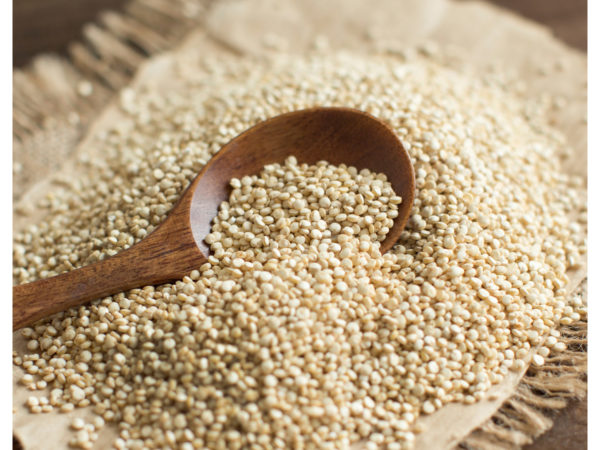Superfood Monday: The Health Benefits Of Quinoa

This tip is courtesy of Dr. Weil on Healthy Aging: Your Online Guide to the Anti-Inflammatory Diet. For more nutrition and health guidance, start your 14-day free trial now!
If you’ve been hearing more about quinoa lately, it’s not a surprise. Considered a “super food,” quinoa (pronounced KEEN-wah) is a relative of beets, spinach and Swiss chard, but its seeds resemble couscous and are prepared and eaten in much the same way. Available in light brown, red and even black varieties, quinoa is light yet filling and has a mellow flavor.
Quinoa is:
- High in magnesium – magnesium helps relax blood vessels, which may result in fewer headaches for migraine sufferers and decreased risk of hypertension and stroke.
- A good source of manganese, iron, copper, phosphorous, vitamin B2 and other essential minerals.
- The richest source of protein of any grain. It is especially high in lysine, an amino acid that is typically low in other grains. Quinoa’s protein is complete, containing all nine essential amino acids – a rarity in the plant kingdom.
- Gluten-free and easy to digest.
Once available only in natural foods stores, quinoa is becoming more mainstream by the day and is easily found in major grocery stores as well. Try to focus more on whole quinoa rather than eating quinoa flour products, which are more processed.
Read more about quinoa and other whole grains, and try these recipes:
Today’s Health Topics
Editor's Pick
Health Focus
Ask Dr. Weil's Q&A
| sponsor | ||
 |
||
|
||
|










